PCOS Books and Resources that May Help You
PCOS is a very complex disorder that is not well understood or easily treated. So you'll want to educate yourself, and seek out involvement with health professionals and support groups.
You -- not your doctor -- are ultimately responsible for your success in dealing with polycystic ovary syndrome.
Here are some resources that you may find helpful or interesting. Publications are listed first, then other resources further below.
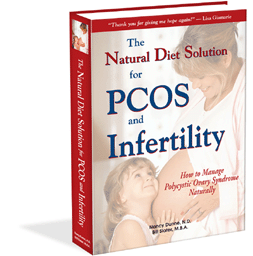
The Natural Diet Solution for PCOS and Infertility (e-book)
by Dr. Nancy Dunne and Bill Slater
A comprehensive diet e-book for women with polycystic ovarian syndrome or any of its symptoms, including infertility, obesity, unwanted hair growth, hair loss, depression, acne, insulin resistance, or polycystic ovaries. The authors provide dietary guidelines for every component of your diet: meat, seafood, poultry, eggs, dairy, legumes & soy, grains, vegetables, fruits, sprouts, nuts and seeds, and fats and oils. You will learn which foods help you to reduce symptoms, and which to avoid. The authors provide a simple, healthy daily meal plans for a month, as well as 150 recipes.

100 Medical Research Secrets for Solving Your PCOS Puzzle
by Bill Slater
This 170-page special report covers vital issues such as:
- The Dietary Crisis in PCOS - 28 Unusual Ways to Solve It
- Is PCOS "All in Your Head?" - 13 Tips for a New Mindset
- 15 Reasons Why PCOS Is a Bigger Disease than You Think
- 10 Natural Therapy and Lifestyle Tips
- Why Exercise Is a "Must Do"
- 13 Nutritional Supplement Insider Research Tips
- And dozens of other tips you can use!

Natural Solutions for Female Hair Loss (e-book)
by Bill Slater
A comprehensive review of chronic hair loss in women -- and what to do about it. Includes most of the conventional and alternative treatment options, plus diet guidelines and your personal hair loss prevention action plan.
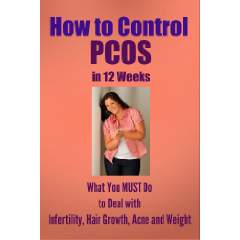
How to Control PCOS in 12 Weeks: What You MUST Do to Deal with Infertility, Hair Growth, Acne, and Weight
by Bill Slater
Looking for a more effective strategy to reduce the effects of PCOS? If so, this short e-book will help you.

50 Simple Ways to Control PCOS with Diet
By Bill Slater
For those of us with PCOS, there's hardly anything more confusing than knowing what we should eat and what we should avoid. Here's an answer to this dilemma.
This e-book reveals 50 specific ways you can modify your dietary habits to more effectively relieve symptoms of PCOS, according to the medical research.

PCOS: The Hidden Epidemic
by Samuel Thatcher, M.D., Ph.D.
This book has a complete discussion of the conventional medical treatment of polycystic ovary syndrome, which is a good reason to have this book as a reference. It should help you to understand the reasoning behind your physician's treatment recommendations. After reading this book, you will be able to have a two-way conversation with your doctor instead of just nodding your head as he or she says things you don't really understand.
Dr. Thatcher has done a good job in explaining the complexities of PCOS and the conventional treatment options for PCOS. But be warned that this book has a lot of medical terminology and information that will not be familiar to you. So give yourself plenty of time to read it.
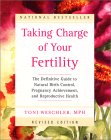
Taking Charge of Your Fertility: The Definitive Guide to Natural Birth Control and Pregnancy Achievement
by Toni Weschler, M.P.H.
"How wonderful to know that control can be returned to where it belongs", said another reviewer of Weschler's detailed and easily-understood book about your reproductive life. We agree!
This comprehensive book explains how to practice the fertility awareness method (FAM). By using simple fertility signs, including peaks in morning body temperature and changes in cervical position and cervical mucus, you can determine when ovulation is occurring. FAM is a valuable tool for those who are trying to conceive.
Infertile women who used the FAM technique have reported to Ms. Weschler that by filling in the detailed charts in the book, they realized they were chronically miscarrying, even when their doctors told them they were not conceiving at all. The book explains how to chart body temperature so that it's easy to tell when a pregnancy has occurred - and when there's danger of miscarriage.
This must-have book answers most questions you would have about your reproductive life. It provides you with information and vocabulary that will help you to more effectively interact with your doctor. The book is also a valuable resource for teens.
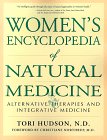
Women's Encyclopedia of Natural Medicine: Alternative Therapies and Integrative Medicine
by Tori Hudson, N.D.
Dr. Hudson's book is a well-researched and well-written book covering the most common medical problems for women, how to prevent them and how to treat them the natural way. If you're tired of the side effects of chemical drugs, you'll find plenty of sound advice and alternative therapies backed up by scrupulous research. This is a great stand-alone volume on the subject but it also complements other books on women's medical conditions written from traditional medical viewpoints.
Women's Encyclopedia of Natural Medicine thoroughly covers the whole range of women's health concerns including menstrual difficulties, menopause, endometriosis, osteoporosis, fibroids, heart disease, and more. Dr. Hudson explores a wealth of complementary therapies -- including vitamin supplementation, herbs, diet and exercise -- and helps women decide when self-care is possible and when a conventional doctor should be consulted.
Although there is no chapter devoted exclusively to PCOS, much of the material in this book applies to women with this disorder. We know Dr. Hudson personally and can recommend this book as an excellent addition to your personal health library.
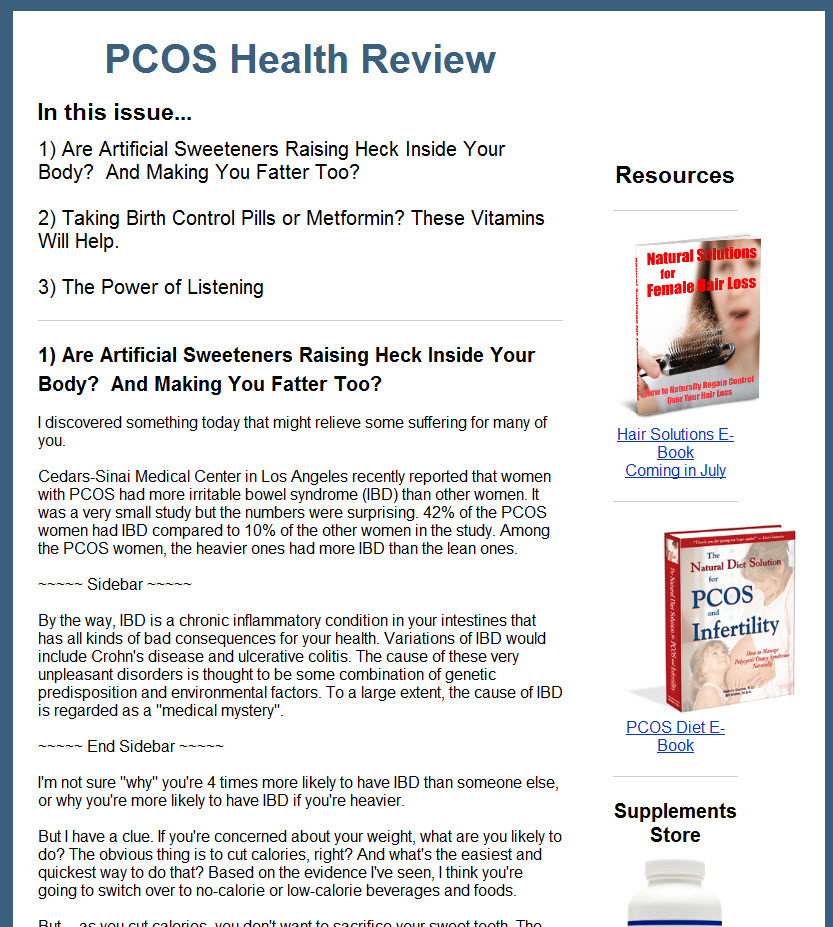
PCOS Health Review Newsletter
A newsletter published about twice a month. It contains valuable and interesting information not commonly seen on the Internet or in books.
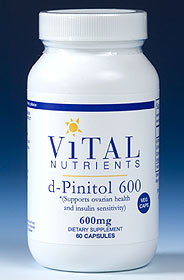
Nutritional Supplements for PCOS
Information about nutritional supplements for polycystic ovarian syndrome, insulin resistance, hair health, and ovarian cysts. You can get high quality nutritional supplements here.
Definitions
Are you confused by all the medical terminology regarding polycystic ovary syndrome? This is a comprehensive list of definitions of medical terms relating to PCOS.
Polycystic Ovarian Syndrome Association
The PCOSA is a non-profit organization created by women who have polycystic ovary syndrome. Its purpose is to serve and support women with polycystic ovarian syndrome. They have a forum and some other resources.
American Association of Naturopathic Physicians (AANP)
Find a licensed naturopathic physician in your area who can help you. Licensed naturopathic physicians tend to take a natural, comprehensive, holistic approach to reproductive disorders, as contrasted to a "take this pharmaceutical pill for that problem" approach.
American College for Advancement in Medicine (ACAM)
ACAM is a not-for-profit medical society dedicated to educating physicians and other health care professionals on the latest findings and emerging procedures in preventive and nutritional medicine. ACAM's goals are to improve skills, knowledge and diagnostic procedures as they relate to complementary and alternative medicine; to support research; and to develop awareness of alternative methods of medical treatment
ExpertScape.com
Looking for a PCOS specialist? This site may -- or may not -- give you a lead to a medical health professional in your area who specializes in polycystic ovary syndrome. Please note that these people are mostly academic researchers who may -- or may not -- have a private practice. If you find an expert in your area, and he or she does not accept private patients, you can always ask for a referral.
MedlinePlus
The
National Institute of Health provides health news, information on any
health topic, medical encyclopedia, health dictionary and more.
Get Answers to your Questions about
- Fertility
- Weight Control
- Hair Loss
- Stress
- Unwanted Hair
- Acne...and more!
FREE PCOS Report
and Newsletter

Your email is safe with us. We respect your privacy, and you may unsubscribe at any time.
Recent Articles
-
PCOS Long Journey to The Happy End
Apr 30, 18 07:24 PM
Hi Girls, Maybe my story will have one day a good end but I am not there yet. Until I was 31 years old I lived my dream, having lovely husband, good -
PCOS and Miscarriage
Apr 17, 18 04:03 PM
Proper diet and natural supplements can help the body maintain a pregnancy through successful delivery.
-
How to Deal with PCOS and Stress
Apr 04, 18 04:19 PM
Your body has a natural capacity to heal itself if you provide it with the necessary tools.
